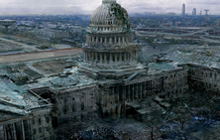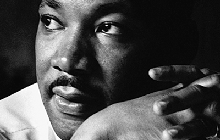As with most modern debates, this discussion focuses on integrating timeless ideas with specific, present issues. After examining both sides, it seems the main points can be boiled down to two thoughts, phrased below as questions:
- Is freedom to be preferred over regulation?
- What is the best means to compassionately help the poor?
Freedom and compassion come up again and again in the Great Conversation of Western civilization. They each need to be carefully defined in order for our thoughts about capitalism and the poor to have real meaning. To end this course, read and reflect upon these quotes from several notable characters, each of which serves as a great starting place for further discussion of this topic:
“The decadent international but individualistic capitalism in the hands of which we found ourselves after the war is not a success. It is not intelligent. It is not beautiful. It is not just. It is not virtuous. And it doesn’t deliver the goods.” John Maynard Keynes
“The world runs on individuals pursuing their separate interests. The great achievements of civilization have not come from government bureaus. Einstein didn’t construct his theory under order from a bureaucrat. Henry Ford didn’t revolutionize the automobile industry that way. In the only cases in which the masses have escaped from the kind of grinding poverty you’re talking about, the only cases in recorded history, are where they have had capitalism and largely free trade. If you want to know where the masses are worse off, worst off, it’s exactly in the kinds of societies that depart from that. So that the record of history is absolutely crystal clear, that there is no alternative way so far discovered of improving the lot of the ordinary people that can hold a candle to the productive activities that are unleashed by the free-enterprise system.” Milton Friedman
“You don’t make the poor richer by making the rich poorer.” Winston Churchill
“The great source of both the misery and disorders of human life, seems to arise from over-rating the difference between one permanent situation and another. Avarice over-rates the difference between poverty and riches: ambition, that between a private and a public station: vain-glory, that between obscurity and extensive reputation. The person under the influence of any of those extravagant passions, is not only miserable in his actual situation, but is often disposed to disturb the peace of society, in order to arrive at that which he so foolishly admires.” Adam Smith, The Theory of Moral Sentiments









